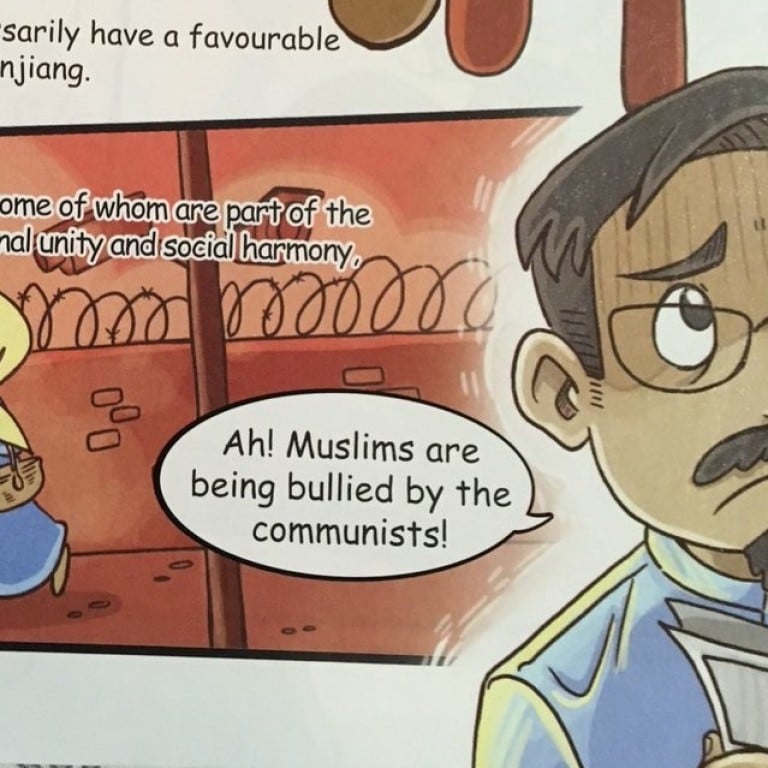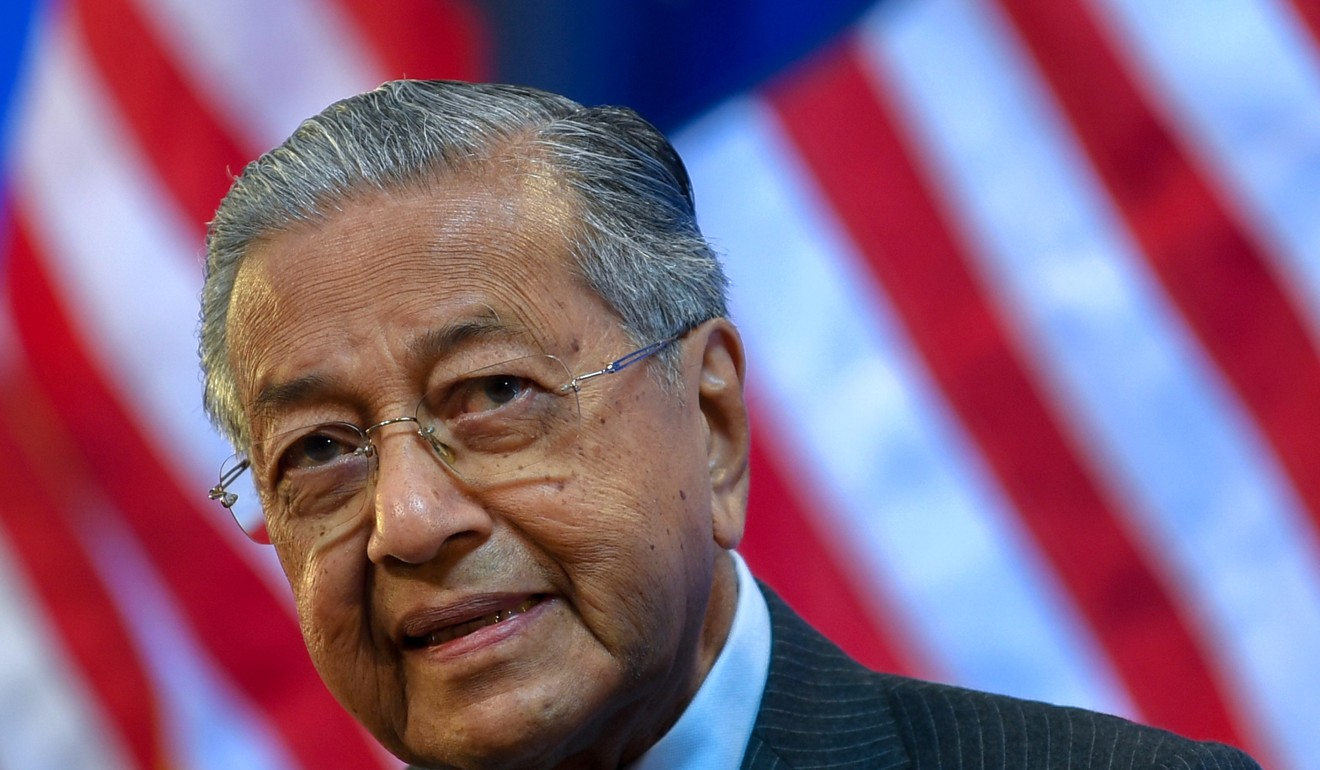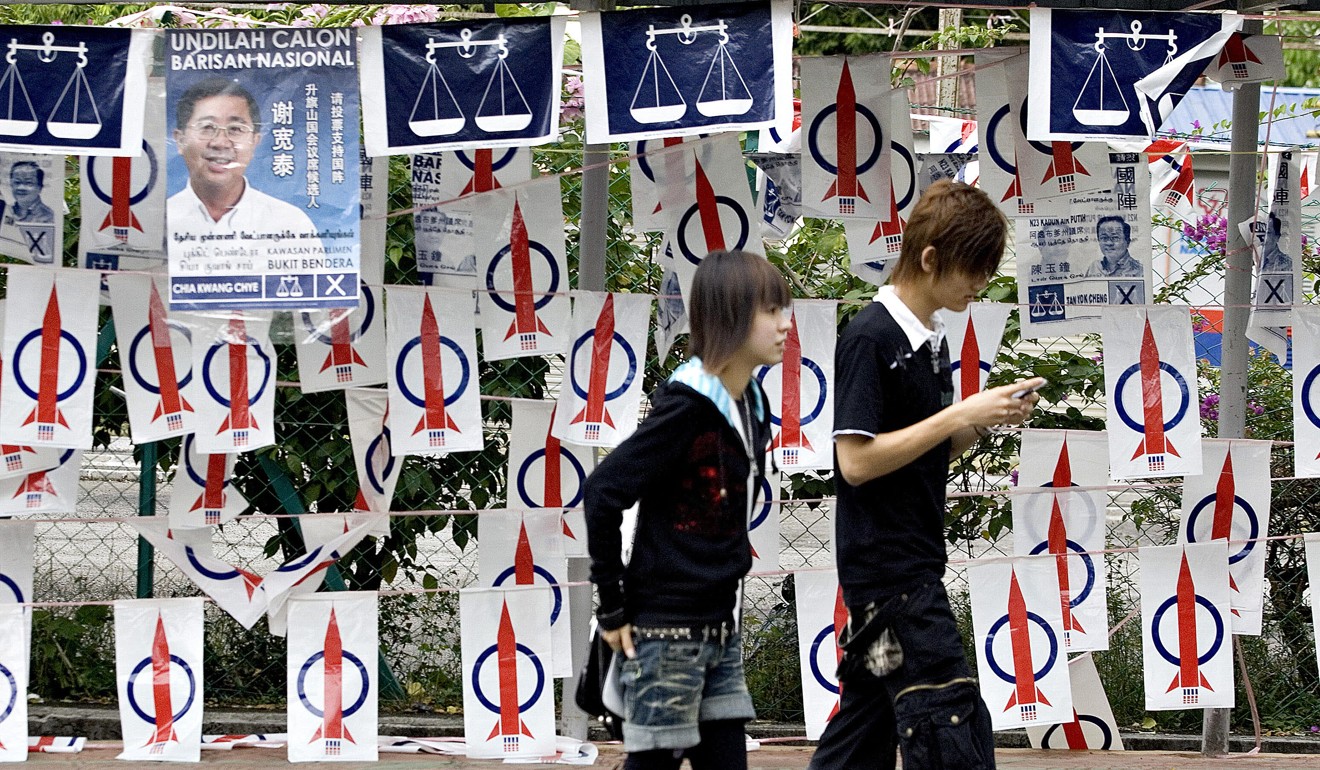
Malaysia’s Mahathir joins criticism of comic book linking Malay-Muslim youths to extremism over China’s Uygurs
- The publication, distributed in high schools, says ‘radical’ Malay youths may be biased against China due to its treatment of the Muslim minority
- The controversy has put a spotlight on the inner workings of the Pakatan Harapan administration, now accused of favouring ethnic Chinese interests
Responding to a question about the comic book, which was authored by a controversial local ex-politician, Mahathir said any attempt to influence the minds of young Malaysians was “not good”.
“Young people must understand the problems and the strategies and the policies of our own country first, so when they come up against other people’s strategies they know their place,” he said.
Malaysia must prepare navy for conflict in South China Sea, minister warns
Written by Hew Kuan Yau – an ethnic Chinese Malaysian and a former member of the Democratic Action Party (DAP), which is part of the ruling Pakatan Harapan coalition – the 164-page Belt and Road Initiative for Win-Winism comic made waves last week when it was distributed to high schools across the country and its contents later shared on social media.
The controversy has also put the spotlight on the internal workings of the DAP – now in government for the first time – as detractors accuse Pakatan Harapan of ignoring the Malay Muslim majority in favour of ethnic Chinese interests.
“Labelling Malays who support the Uygur community as ‘radical’. If this is not racism, I don’t know what is,” Syed said.
Beijing has been accused of detaining thousands of Uygurs and other Muslim minorities, forcing them into political camps for indoctrination in the Xinjiang autonomous region in the country’s west.
Uygurs who have fled China have said they were physically and mentally tortured, separated from their families, and forced to eat pork and study communist propaganda.
Malaysia, Indonesia fear return home of fighters jailed in Syria
The comic, which was sent to schools for free, has been since banned by the Education Ministry, which said it had never approved its distribution. The Home Ministry has said it is investigating the matter, while the Prime Minister’s Office released a statement denying any involvement in the publication.

Hew, known in Malaysia for his foul-mouthed speeches and his penchant for wearing Superman-themed T-shirts to public events, defended the comic by saying it was intended to teach students about the belt and road plan “from theory to practice”.
“The South China Sea belongs to China. Don’t oppose China just because you’re anti-communist,” he wrote, earning the ire of lawmakers from both sides of the Malaysian political divide who accused him of undermining state sovereignty.
Hew’s political speeches were known for their racially charged rhetoric, including one made in 2016 in which he urged voters to vote for a DAP candidate to “screw the Malays”.
Despite leaving the party, Hew has maintained close ties with his former colleagues, with DAP chairman Tan Kok Wai making him chief executive officer of the Malaysia-Chinese Business Council earlier this year. The comic contains a foreword written by Finance Minister Lim Guan Eng, who is also DAP secretary general.
While the furore over the comic has seen some prominent DAP members distance themselves from the ex-politician, over 40 grass roots leaders – including elected representatives – have thrown their support behind Hew, defending the publication and demanding that investigations be dropped.

In a country increasingly divided along racial lines, ethnopolitical rhetoric is thriving as Malaysia’s leaders struggle to execute economic, institutional and legal reforms while retaining the support of Malay-Muslims – the country’s largest vote bank at over 65 per cent of the population.
Voters are given a binary choice: a conservative Malay-Muslim opposition running on a racial-religious platform, or a fragmented Pakatan Harapan.
The coalition won the 2018 polls with 95 per cent of the country’s ethnic Chinese vote, but only 30 per cent of the Malay vote. Within Pakatan Harapan, premier Mahathir’s Malaysian United Indigenous Party (Bersatu) and the Islamic National Trust Party (Amanah) have struggled to retain relevance with Malay voters who view the government’s multiracial approach with some scepticism, while the DAP has dealt with accusations that it is geared towards ethnic Chinese interests.
‘Abominable’ won’t be screened in Malaysia after South China Sea map uproar
“The optics are bad,” said a DAP source. “The problem is many Chinese Malaysians like Hew, they are comfortable with his casual racial chauvinism. Party leaders tolerate him because he is liked by this vote bank, although many of us think he is a loose cannon. But in the long run, standing by him just feeds into the notion that the DAP is a Chinese party and not a multiracial one.”
The comic, and the DAP leadership’s reluctance to disavow Hew, has bolstered the public perception that the party is “too dominant” in the government, said political scientist Awang Azman Awang Pawi of University Malaya’s Institute of Malay Studies.
“Failure to condemn Hew’s actions will lead to more accusations that the DAP is a chauvinist party that does not object to such sentiment or actions.”

